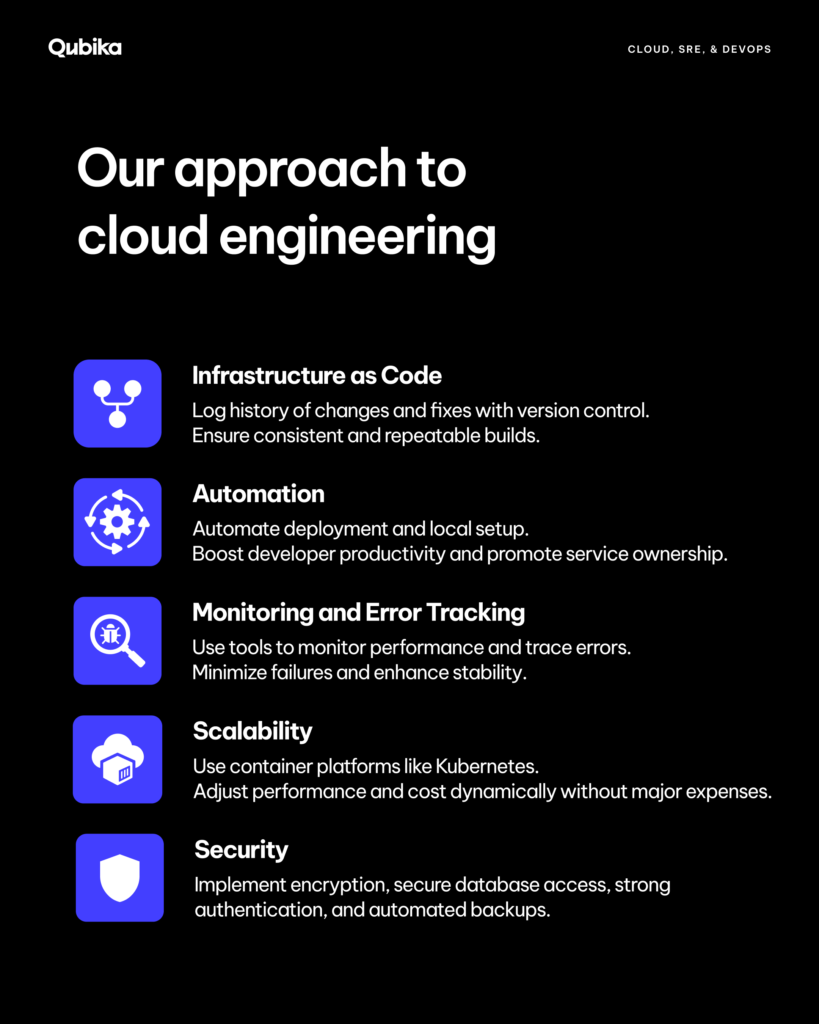How we accelerate businesses’ AWS cloud journeys
Learn more about our Advanced Tier partnership with AWS.

Qubika at Databricks Data + AI Summit
Join us June 9-12 to see our leading Databricks capabilities

Financial services
Expertise in core banking, BaaS integrations, payments, and GenAI-enhanced financial solutions.

Healthcare
People-centric healthcare design and solutions, from virtual care, integrations, to smart devices.

Insurance
Modern solutions including self-service, on-demand, and algorithm-driven personalization.

Hi-tech & semiconductors
Semiconductor design, firmware and IoT development, and AI-powered embedded systems.

Qubika is a Databricks Select Partner
Learn more about our journey, our 150+ certified Databricks experts, and how we’re delivering solutions such as autonomous AI agents.

Databricks Capabilities
Learn more about Qubika's strong partnership with Databricks as a Select Partner, delivering solutions across the finance, banking, healthcare, hi-tech, and entertainment industries.

Databricks Impact on Financial Institutions
Databricks empowers financial institutions to harness unified data and AI, such as for real-time fraud detection, dynamic risk modeling, and personalized customer experiences.
October 15, 2024
CTOs know the importance of building cloud systems that are scalable, resilient, and secure. Qubika empowers teams to embrace cloud-native principles, ensuring their systems thrive in the dynamic digital landscape.

CTOs are acutely aware that simply “lifting and shifting” to the cloud isn’t enough. The true value lies in building systems that are inherently scalable, resilient, and secure – a challenge that requires more than just technical expertise.
In this article I want to highlight some of the ways in which Qubika’s Cloud, Site Reliability Engineering, and DevOps Studio guides CTOs and their teams towards building systems that are truly cloud-native.
We understand that cloud adoption is a complex journey, demanding more than just technical expertise. It requires a strategic vision and a commitment to best practices. Here’s how we empower our clients with our dedicated cloud computing services:

In our teams that provide cloud computing services, you’ll find three key roles: cloud engineers, SRE engineers, and DevOps engineers. Let’s take a look at each of these roles.
In today’s rapidly evolving digital landscape, cloud-native architecture isn’t just an option; it’s a necessity. Embracing cloud-native principles empowers your organization with the scalability, resiliency, and agility needed to thrive in a competitive market. It enables you to respond quickly to changing demands, innovate faster, and deliver exceptional experiences to your customers.
Learn more about Qubika’s Cloud, SRE, and DevOps services.
SRE-Post
SRE Studio Manager
Receive regular updates about our latest work

Learn more about our Advanced Tier partnership with AWS.


Qubika’s SRE, Cloud, and Cybersecurity Studio share key tools they use to efficiently manage cloud infrastructures.


Learn how to set up a Google CDN for serving images for your next project.

Receive regular updates about our latest work
Get in touch with our experts to review your idea or product, and discuss options for the best approach
Get in touchArtificial Intelligence Services
Accelerate AI
Healthcare Solutions
Data
Agentic Factory
Financial Services Technology
Platform engineering
Data Foundation